The word “utopia” is a pun on the Greek ou-topos meaning ‘no place‘ and eu-topos meaning ‘good place‘ (British Library). Thomas More (1478 – 1535) came up with it for his book, Utopia, which is about an island uncorrupted by greed that has qualities of perfection (read: Utopia).
More was a lawyer, judge and Catholic who practiced self-flagellation and wore a skin-irritating hair shirt. He saw Protestantism as a threat to society and served as Lord Chancellor of England until retirement, but then he irritated King Henry VIII by not attending Henry’s wedding and by not acknowledging Henry as head of the Church of England (source).

More described European society as a place where, “Idle monarchs and nobles seek to increase their own wealth and power at the expense of the people, who are left in poverty and misery;” therefore, More’s utopia is “communal, allowing its people to easily meet their needs” (source).
But then we know where communal living gets us sometimes. Look at injustices in the former Soviet Union or wealth disparity in China which is as bad as anywhere.
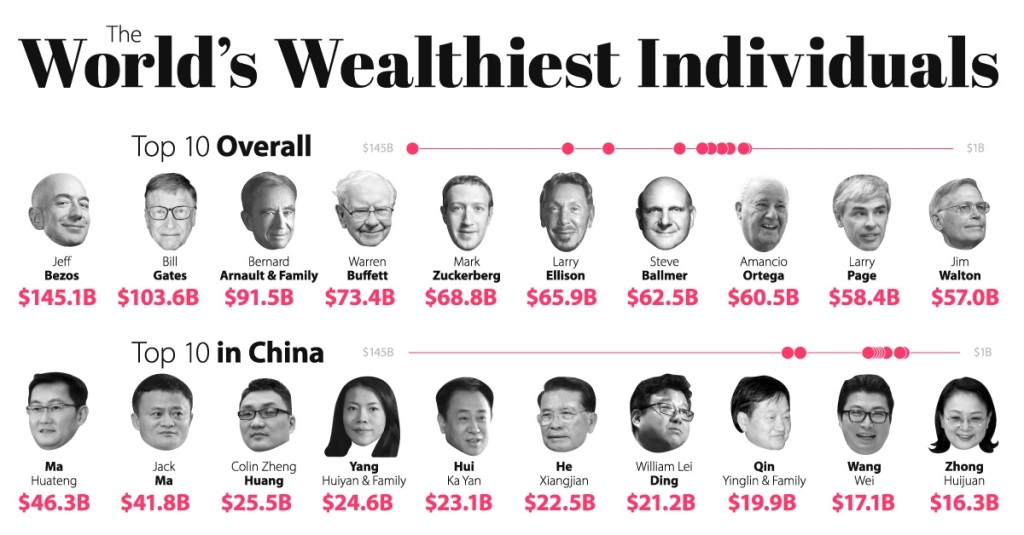
Nothing has changed since Thomas More’s time except for the names (and a lot of pollution). Instead of Czar Nicholas II, we have Vladimir Putin. Instead of Rockefeller, we have Bezos and Gates, among others.
Is anyone surprised?
Surely not.
Our problem isn’t political, it’s psychological. We can complain about unfairness, but who among us wouldn’t enjoy being rich? The drive to feel important is strong.
Cue music:
Trouble is, studies show, when people even think about money, it makes them selfish (see: Mere Thought of Money Makes People Selfish).
Psychologist Paul Piff has done studies proving selfishness occurs as a result of having more than others (see: The Science of Greed).
In one study two people played Monopoly and by the flip of a coin, one person was given an unfair advantage that made them rich. As the game went on, the “rich” started to act dominant and in the end, despite advantages clearly given, they saw their win as a result of ability.
Piff has found that people are willing to put others down to put themselves up. “A sense of power and addiction gets fueled more and more with the gaining of money” (source).
We may enjoy watching billionaires get their money taken by “f*** society” in the show Mr. Robot (2015-2019), but we know, if we were a billionaire, we too would probably think we’re special and cling to our money.
But then, how can knowing people are unfair make life beautiful? Grumbling about injustice doesn’t make things just! Feeling hostility doesn’t help us fix things. It just drains our energy and keeps us focused on problems instead of solutions.
A perfect world is perceived as impossible, so why bother? Utopian is considered “visionary reform that tends to be impossibly idealistic” (Britannica). You’re more likely to see a dystopia (a place of great suffering and injustice) than a utopia. Dystopias seem more doable.
Some people even say we’re in a dystopia now (see: Dystopia is Realism: The Future Is Here If You Look Closely).
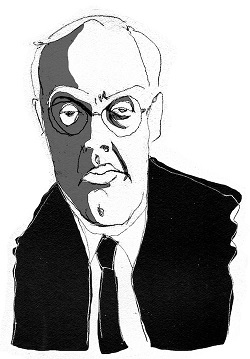
Journalist and Presbyterian minister, Chris Hedges, paints a dystopian picture: “The issue before us is death. Not only our individual death, which is more imminent for some of us this morning than others, but our collective death. We have begun the sixth great mass extinction, driven by our 150-year binge on fossil fuel….” (Confronting the Culture of Death).
Most of our problems individually and collectively are the result of hedonia or hedonism—from Greek hēdonē meaning “pleasure.”
Our inclination is to enjoy and seek escape by indulging in TV, video games, golf, food, drugs, drinking—whatever it takes to detach from what is displeasing (see also: Facing a Pine-scented Breeze).
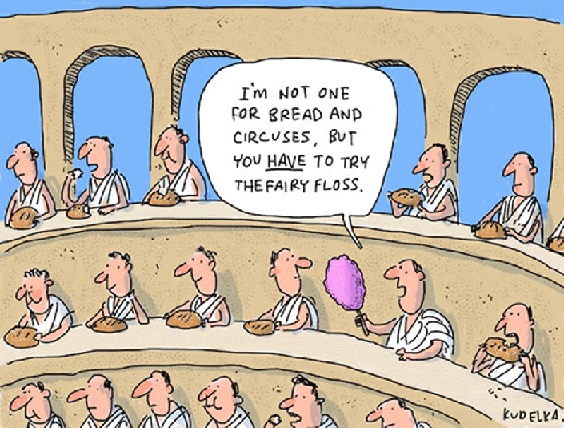
Trouble is, for some of us, no sooner is a pleasure over when it’s wanted again (just ask any addict). The ancients knew this. Aristotle (384-323 BC) said, “I count him braver who overcomes his desires than him who conquers his enemies, for the hardest victory is over self” (source).
For there is a danger in pleasure when people do what they please—especially when there are 7.9 billion of us (see Worldometer). By focusing on personal pleasure we put our self before others and neglect responsibilities.
Moreover, some people are susceptible to the disorder of psychopathy which is a lack of care for others, extreme egotism and a failure to learn from experience (source).
What do you think?
Get to know yourself with this interesting test:
Measure your degree of psychopathy with the:
The philosopher Epicurus (341-270 BC) promoted pleasure but not a materialistic money-oriented version because it lacks prudence, as in, “the ability to govern and discipline oneself by the use of reason.” Epicurus taught that “grabbing easy worldly pleasures is a mistake because ultimately they don’t satisfy” (source). His goal was the pleasure of not suffering.
The Roman Stoic Epictetus (c. 50–135 AD) seems to agree saying, “Don’t demand that things happen as you wish, but wish that they happen as they do happen, and you will go on well” (The Enchiridion).
This is where the Greek eudomania (U-de-‘mO-nēa), ataraxia (at-a-rax-ia) and “Oh Yeah!” comes in.
Eudomania means “good spirit,” or “happiness” in English. Aristotle said that eudaimonia is “the only human good that is desirable for its own sake (as an end in itself) rather than for the sake of something else (as a means toward some other end)” (Britannica).
From eudomania comes ataraxia which is “tranquility” or serene calmness “untroubled by mental or emotional disquiet” (Merriam-Webster).
For ancient philosophers like Epicurus, Aristotle and Epictetus (along with most religious traditions), serene calmness or peace of mind is the ultimate pleasure, but it only comes by way of practicing self-control and virtues like justice, prudence, fortitude and temperance.
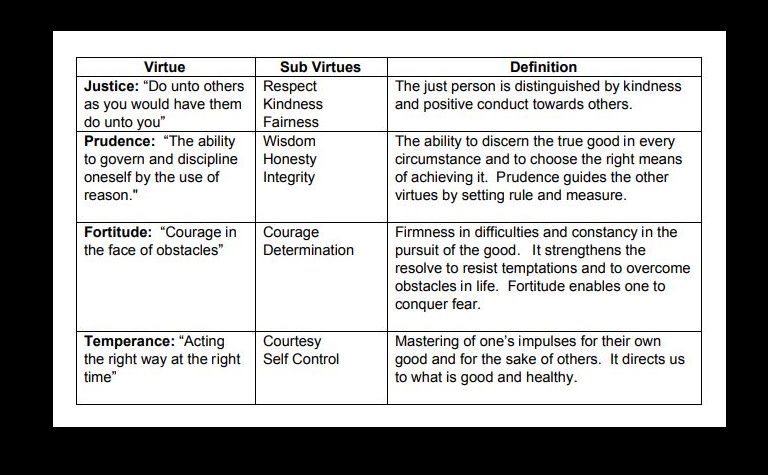
Here’s the kicker:
You can be in a good spirit in a good place here and now! No need for dope, booze, or anything in particular. You don’t do anything but watch how thoughts come and go. Watch how thoughts stir up emotions that can rob you of joy and trouble the world.
Forget concepts and look around. We’re in a utopia now. It’s called Earth. Only, we don’t see it as it is (Anaïs Nin, 1961).
We’re blinded by profit margins and personal desires, but if you practice virtues like prudence as advised by anyone wise, you can enjoy simple moments of beauty, tranquility and transcendence until you too get it and say, ” Ooooh Yeah.”
Enjoy.

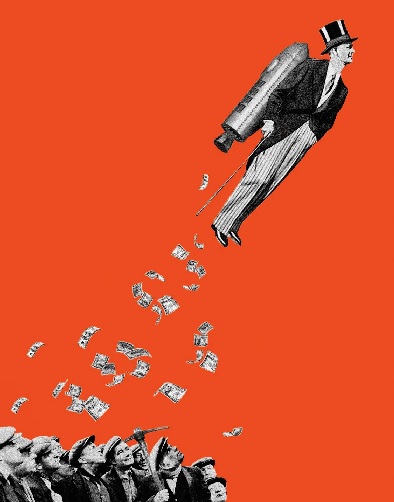
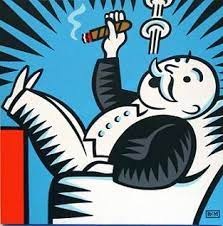


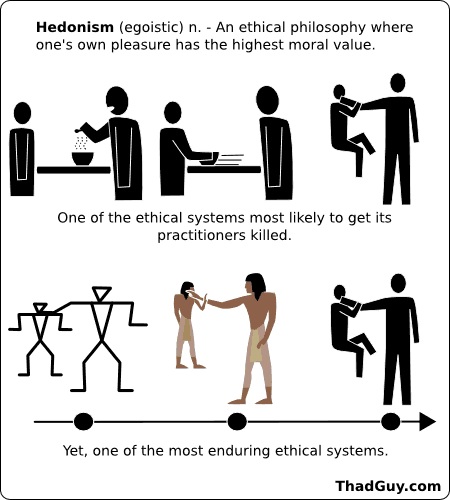

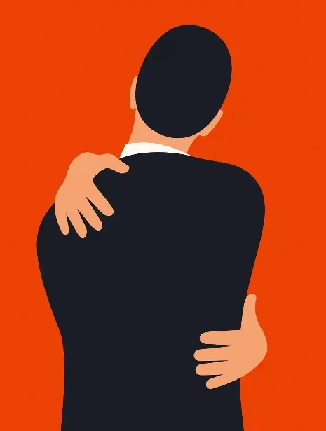






 This is the world. The world is as it is. It is not as it isn’t. The world is an interconnected balancing act. Some people say humans came from the hand of God. Some say they came from aliens or from rocks, water and sunshine, but any way you slice it, it’s really quite amazing.
This is the world. The world is as it is. It is not as it isn’t. The world is an interconnected balancing act. Some people say humans came from the hand of God. Some say they came from aliens or from rocks, water and sunshine, but any way you slice it, it’s really quite amazing. Like alternating current (AC) and direct current (dc), the world is positive and negative. Clickety-clack. Clickety-clack. One thing leads to another on the train of days we call life. We hope something incredible will happen—if we’re lucky, if we’re blessed, if a genie grants our wish—but magic doesn’t come from outside.
Like alternating current (AC) and direct current (dc), the world is positive and negative. Clickety-clack. Clickety-clack. One thing leads to another on the train of days we call life. We hope something incredible will happen—if we’re lucky, if we’re blessed, if a genie grants our wish—but magic doesn’t come from outside.


 In this age of entertainment, where people are immersed in computer generated fantasy or escape through drugs and alcohol, it’s interesting to see that people are still singing, “I can’t get no satisfaction. ‘Cause I try and I try and I try,” like Mick Jagger (“
In this age of entertainment, where people are immersed in computer generated fantasy or escape through drugs and alcohol, it’s interesting to see that people are still singing, “I can’t get no satisfaction. ‘Cause I try and I try and I try,” like Mick Jagger (“

 In “
In “



 Feel aware of yourself feeling aware in the world you’re in and like Daniel Boone sing, “Hey, hey, hey, it’s a beautiful day” (“Beautiful Sunday”).
Feel aware of yourself feeling aware in the world you’re in and like Daniel Boone sing, “Hey, hey, hey, it’s a beautiful day” (“Beautiful Sunday”).





 Philosopher Robert Nozick (1938-2002) posed the following thought experiment. Imagine scientists have a machine – picture the Matrix or virtual reality – that simulates real life while guaranteeing only pleasurable experiences, never pain. The catch is, you have to leave reality behind.
Philosopher Robert Nozick (1938-2002) posed the following thought experiment. Imagine scientists have a machine – picture the Matrix or virtual reality – that simulates real life while guaranteeing only pleasurable experiences, never pain. The catch is, you have to leave reality behind. Nozick asks, “If you were given the choice to sign up for that kind of existence, would you?”
Nozick asks, “If you were given the choice to sign up for that kind of existence, would you?”

 Bill Murray said, “The more relaxed you are, the better you are at everything: the better you are with your loved ones, the better you are with your enemies, the better you are at your job, the better you are with yourself” (
Bill Murray said, “The more relaxed you are, the better you are at everything: the better you are with your loved ones, the better you are with your enemies, the better you are at your job, the better you are with yourself” ( Joey from “Friends” (1994-2004) nailed it. “Look,” he said, “there’s no unselfish good deed… That’s because all people are selfish… selfless good deeds don’t exist!” (see
Joey from “Friends” (1994-2004) nailed it. “Look,” he said, “there’s no unselfish good deed… That’s because all people are selfish… selfless good deeds don’t exist!” (see 
